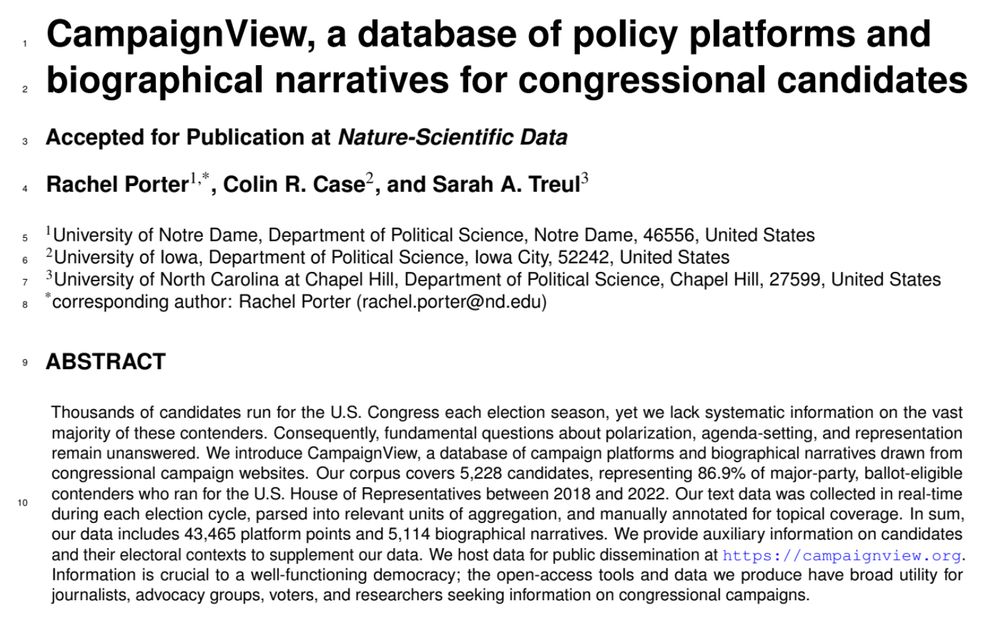Colin Case
@colinrcase.bsky.social
360 followers
240 following
9 posts
Assistant Professor at the University of Iowa | congressional elections and text analysis | UNC & UMich alum | colinrcase.com
Posts
Media
Videos
Starter Packs
Colin Case
@colinrcase.bsky.social
· Sep 5
Colin Case
@colinrcase.bsky.social
· Sep 5
Colin Case
@colinrcase.bsky.social
· Sep 5
Colin Case
@colinrcase.bsky.social
· Sep 5
Reposted by Colin Case
Reposted by Colin Case
Reposted by Colin Case










